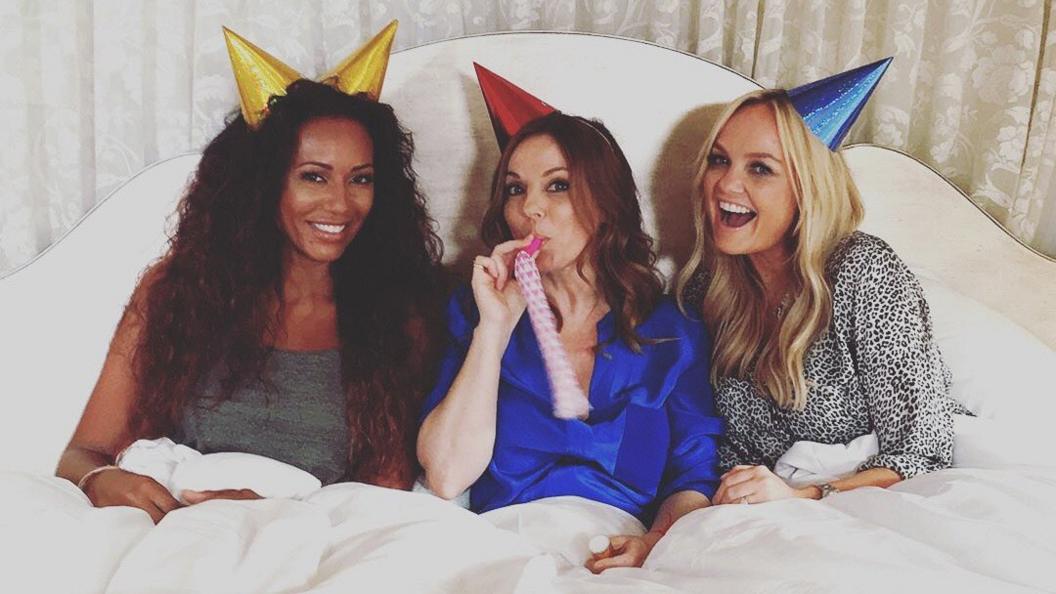Geri Horner: Why my son is named after George Michael
- Published
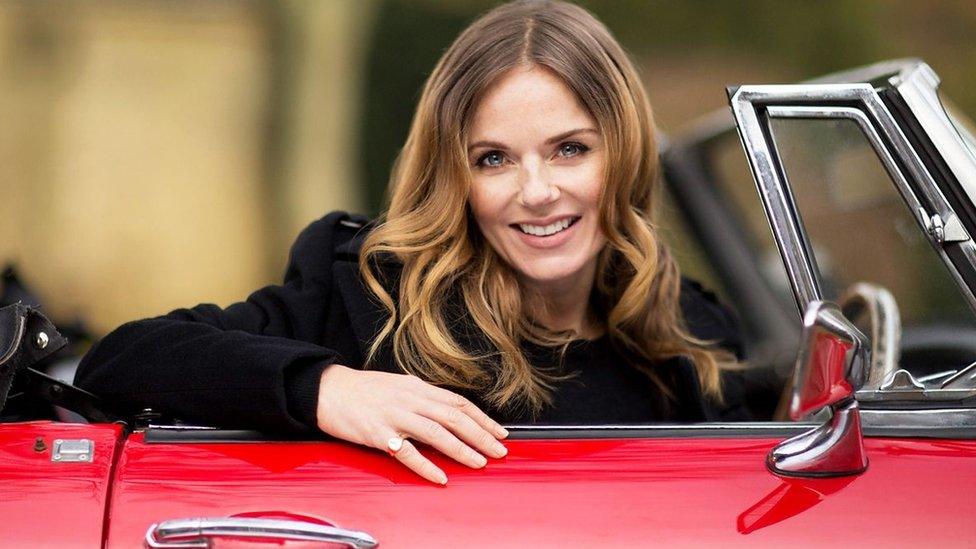
Geri Horner: "The '90s were like the '60s, very free and full of colour"
It's 20 years since Geri Horner (then Halliwell) strode onto the Brits stage in her Union Jack dress in one of the defining images of the 1990s.
To mark the anniversary, the singer is hosting a BBC Two documentary on the decade, looking at her own journey from Turkish game show host to globe-straddling, Nelson Mandela-cuddling pop phenomenon.
It's called Geri's 1990s: My Drive to Freedom - referring to the 1967 open-topped sports car she bought with her first "fat pay cheque" from Virgin Records.
Ahead of the broadcast this Saturday, the star sat down with BBC News to reflect on the decade that changed her life.
Along the way, she reveals the creative tensions that split up the Spice Girls, her time as a Turkish TV show hostess, and why she named her newborn son after George Michael.
Geri Horner recalls her first Spice Girls pay cheque
What struck you most about the 1990s while making the documentary?
It was a really good reminder of how much influence that decade had on my life. It was brilliant in every way - musically, culturally, politically. There was so much colour and creativity. Britain felt like the centre of the universe at that moment.
You turned 18 in 1990, and almost immediately had surgery to remove a lump in your breast...
Yes, I had a little scare. [The lump turned out not to be cancerous, external]
That's not something most teenagers have to confront. How did it change your life? Did it make you more ambitious?
I think it was something else that put the petrol in my tank. I was always ambitious, but my dad died when I was quite young. He'd always been very encouraging of my career, and when he died not only did I experience the loss of a parent, but also my own mortality. You suddenly think: "Oh God, life's here and you've just got to go for it". That, for me, was a defining moment.
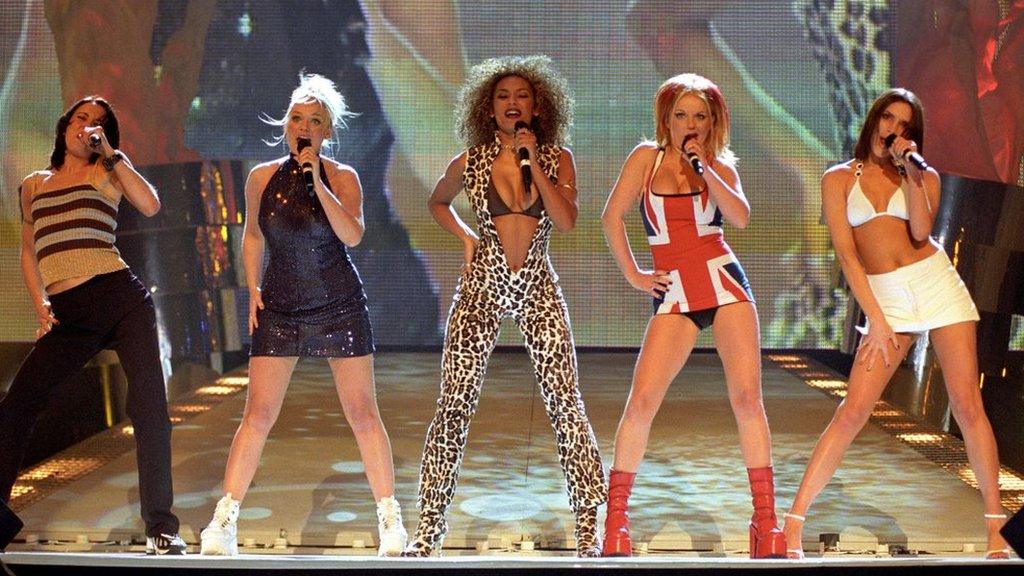
The Spice Girls stole the show at the 1997 Brit Awards
For the next couple of years, you tried your hand at modelling and TV presenting. Were you just looking for the best way to get a break?
Two things happened: I went back to college to study English Literature - but to subsidise that, I had to take lots of little jobs.
One of them, I was a game show hostess in Turkey, external. The show was a bit like The Price is Right, and I would go to Turkey and do that. I had all these random jobs, but what they ultimately were for, was to fund me going into the studio.
I remember the guy said it would cost £300 to get my demo tape together. I'd written one song myself and the other was a cover of the song A Lover's Holiday, external.
What was your song called?
It was called Live to Love. It was pretty crap.
You auditioned for the Spice Girls after answering a newspaper advert. How many times had you been through that process?
Oh, I'd tried loads and loads of different things. All sorts of random stuff. And there were some dodgy things, believe me.
The band got huge very quickly. It's amazing to think that the period between Wannabe and you leaving wasn't even two years. What's your memory of that period?
When you're in the middle of it, you just sort of get on with it. I liked being part of a group. The camaraderie. It was a lot of fun.
It got quite hysterical - the paparazzi, the screaming fans, the constant tabloid stories. Was fame what you had dreamt it would be?
What you think about something and what it turns out to be is never going to be quite the same. Some bits are better, some bits are not. But it was a very happy, fun, full-on experience.
Geri says Girl Power was 'more palatable' than feminism
In the documentary, you talk about Girl Power being a less threatening way to discuss feminism.
Twenty years ago, if you said the word feminism, you thought of those bra-burning, marching protestors. It was quite tough and harsh.
For me, Girl Power was a much more punchy way of saying it. But actually, Girl Power embodies much more than a gender. It's about everybody. Everybody deserves the same treatment, whatever race you are, gender you are, age you are. Everybody deserves a voice.
It was just saying that in a very digestible way.
There was a clip that went viral last year, where you and the rest of the band have a blazing row, external with a director who wanted you to show more cleavage.
Oh, I saw that, when I told the bloke to zip it!
Do you know what? I didn't actually take that very personally. Sometimes people just need reminding that we have to be respectful. He's just being a bit silly. He needs reminding what's what.
I was interested to hear you talk about songwriting earlier, because it's rarely discussed that that Spice Girls have writing credits on all of their singles. Do you think that's been overlooked?
I feel incredibly proud to have been part of the writing. I've always loved lyric-writing, and melodies - so if it gets recognised, fantastic.
What's the song you're proudest of?
I'm proud of my solo album - the first one I did - because it was so honest.
If you listen to Lift Me Up, external, I was really inspired by the Carpenters. On the bridge, where I sing "it's going to be alright", I was trying to the way Karen's voice would go really low and then soar up again.
But then I also love Wannabe, external. It's a very confident song.
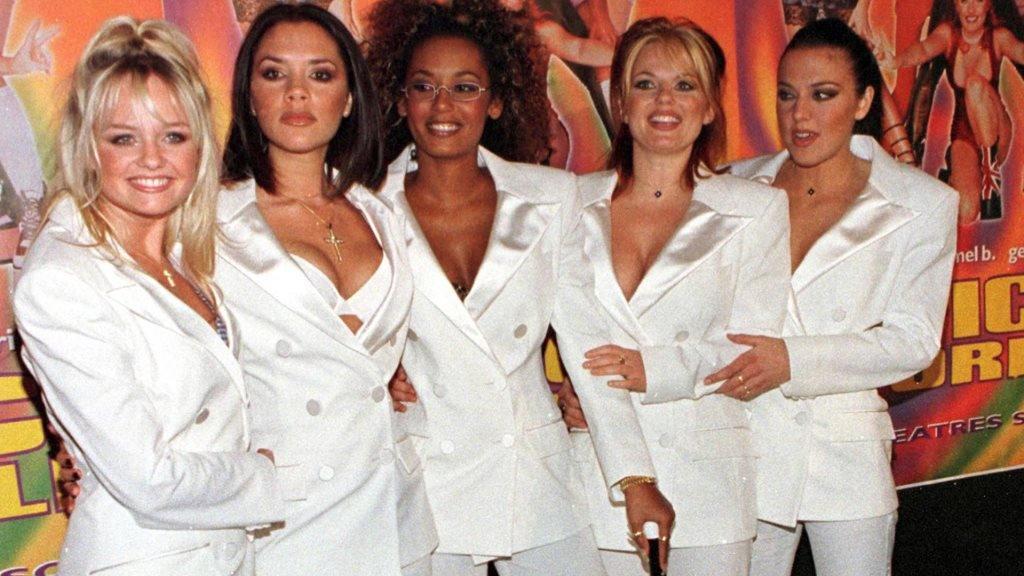
The Spice Girls hits included Stop, Wannabe, Say You'll Be There and Spice Up Your Life
You had to fight for Wannabe to be your first single, didn't you?
Really fight for it.
Why was that?
Nobody wanted it. The record company didn't want it. Management didn't want it. And I can understand the hesitation. It was not the coolest.
But the best song to me is when you instinctively like it - not because it's cool, not because it's what the latest fad is. You just connect to it.
The advantage of Wannabe being uncool was that, when Say You'll Be There came out people suddenly sat up and said, "wait a minute, there's more to this band than we assumed".
And we always knew it could only ever be that way round. I had faith in it and Emma had faith in it.
Looking back, would you stand by your decision to quit the band?
Erm… Would I have left? It depends.
They wanted to make an R&B album. Am I a big R&B fan? Not really. I'm a pop writer. I felt comfortable in that genre and it felt completely alien to me to sing in that R&B style. My departure almost set them free a bit, and allowed them to make that album [Forever, recorded with Rodney Jerkins].
So I don't regret it. Part of life is change.
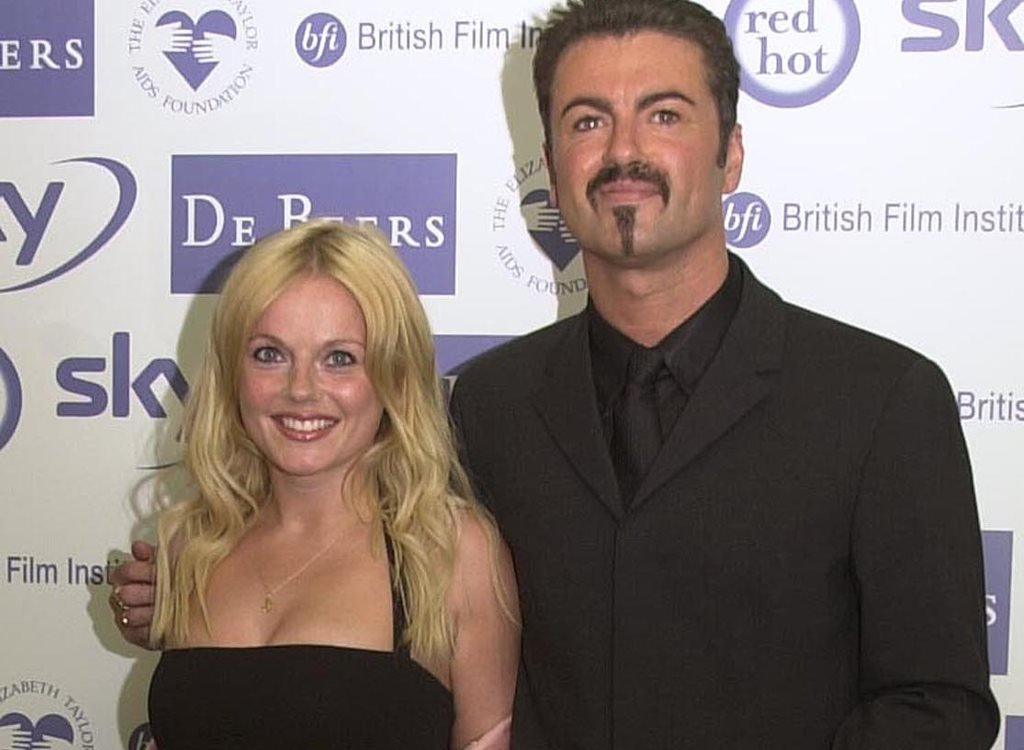
The singer struck up a friendship with her idol, George Michael
You became friends with George Michael around that time. What are you memories of him?
I always had sort of a crush on him, so when I met him I just thought, "wow!".
Most of all, I admired him as an artist, for his music but also, I just think he was a really kind, good person.
I filmed the documentary before he died - but I talk about him, and now that [section] has become really sad and poignant. He was just such a generous, kind, loving being.
Your new son is called Montague George Hector Horner. Is that partly in his honour?
Yeah, it was my mother's idea. Because she was very fond of George and he really loved my mum. He went to her wedding!
I had a month [of pregnancy] to go after George died and when Monty was born, mum said, "why don't you give him George's name?". And I thought, "oh that's really sweet."
After you left The Spice Girls, you worked for several years as a UN spokesperson. I get the feeling that changed you as a person.
I tell you what - it puts it all in perspective. You realise how lucky we are to live in a country like this. We have an NHS - I know we complain about it, but we have one. We have a support system for the unemployed. There is a structure here that supports. And there is a freedom that some countries do not have.
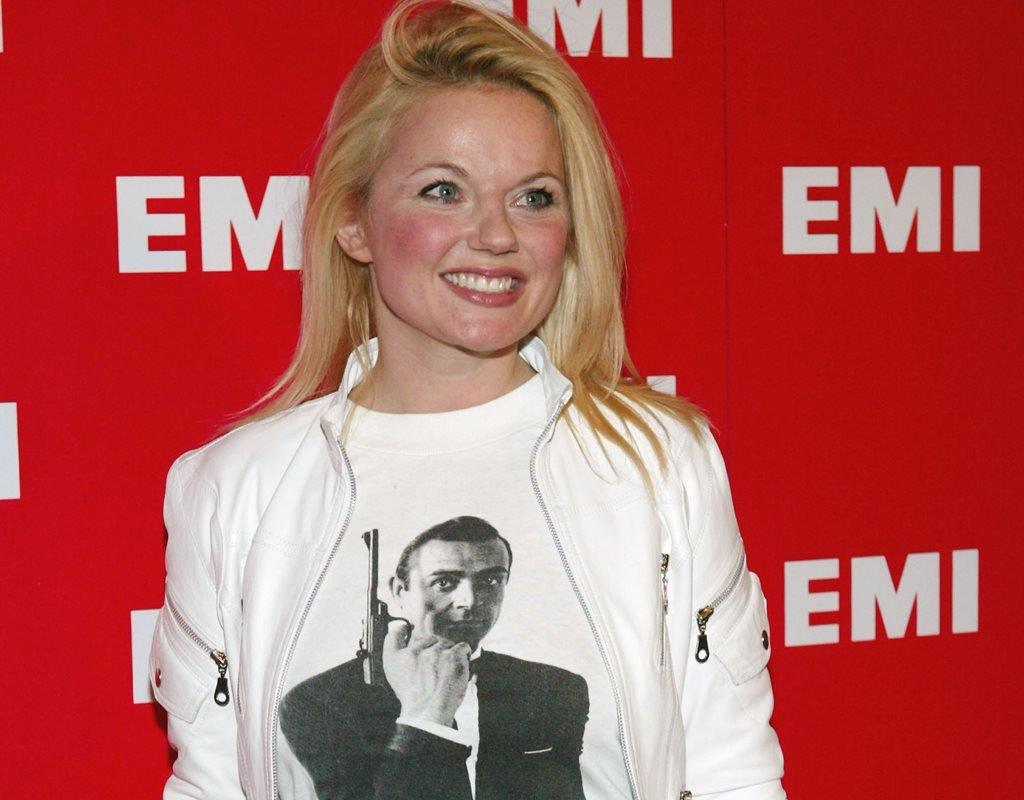
The star lobbied to play a Bond girl in the late 1990s
Another thing you did after the Spice Girls was you attended drama school.
Yeah! You've really done your research!
And then you auditioned for Bond?
Actually, they just called me in for a chat. They didn't give me the part. I don't think I was up their street.
But you did end up with a cameo in Sex and the City.
Oh my God, that was amazing. That was amazing! I had to properly audition for it. They were very strict, because it was all about comedy timing and very tightly scripted. But I think I got more kudos from doing that than anything else. My girlfriends were so excited I was in that.
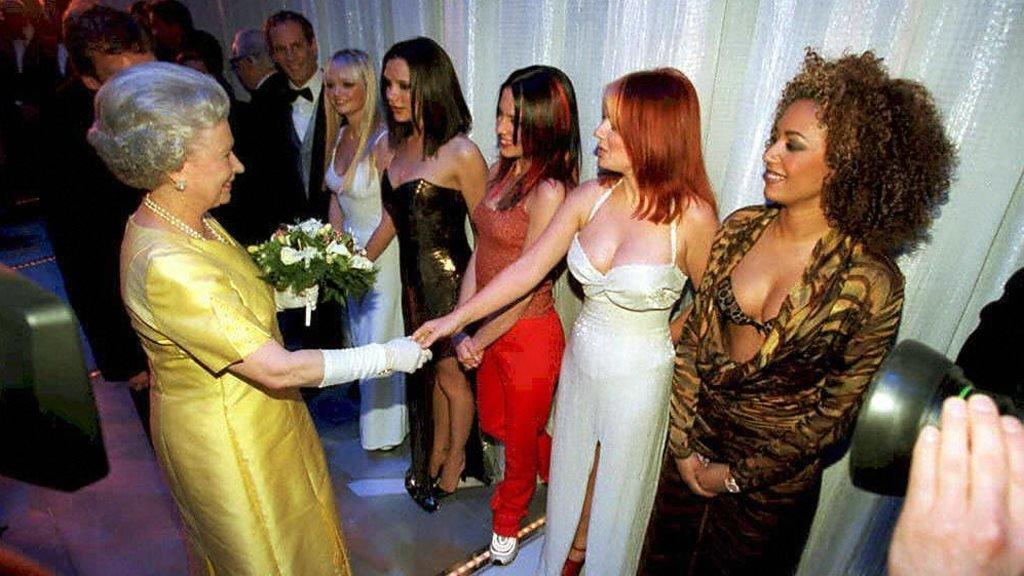
The Spice Girls sold more than 85 million records and performed for royalty
You're working on a solo album right now. How is that going?
I wrote the majority of the album when I was pregnant and it's really coming together now.
Having children has inspired some great records - Madonna's Ray of Light, Neneh Cherry's Raw Like Sushi…
Do you know what? I felt this surge of creativity when I was pregnant. And you're much more emotional - my feelings were really on tap.
But this album - it's just so different. I feel like I've jumped over to the other side. When you're a certain genre, like the pop genre, it's like being 12 and to get to the other side, to grow up and be comfortable, has taken me a while. But I feel like I've finally done it.
When do we get to hear it?
I'm really, really hopeful that it's this side of the summer. That would be really nice. I'd be really happy to share it.
Geri's 1990s: My Drive to Freedom is on BBC Two at 21:00 GMT this Saturday, 11 March, as part of the BBC's My Generation series.

Follow us on Facebook, external, on Twitter @BBCNewsEnts, external, or on Instagram at bbcnewsents, external. If you have a story suggestion email entertainment.news@bbc.co.uk, external.

- Published24 January 2017
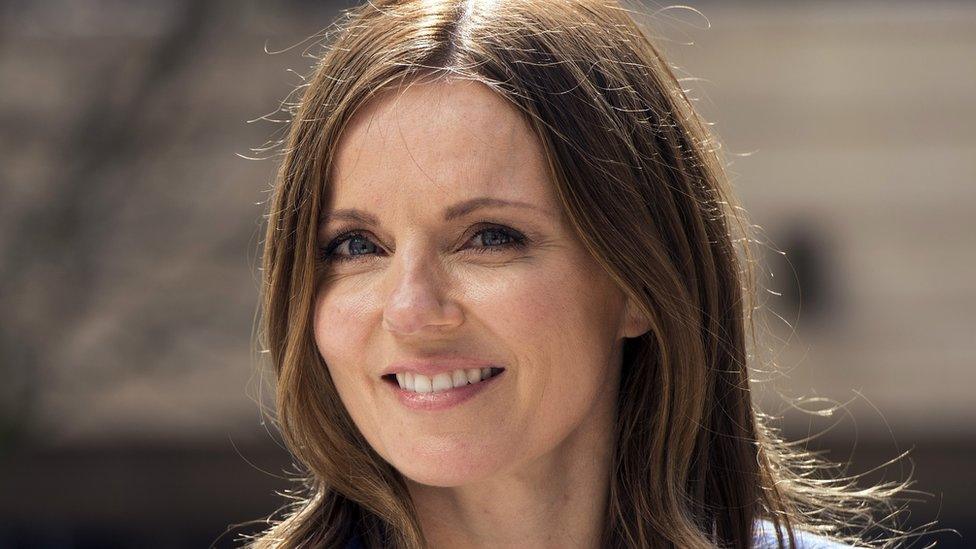
- Published20 October 2016
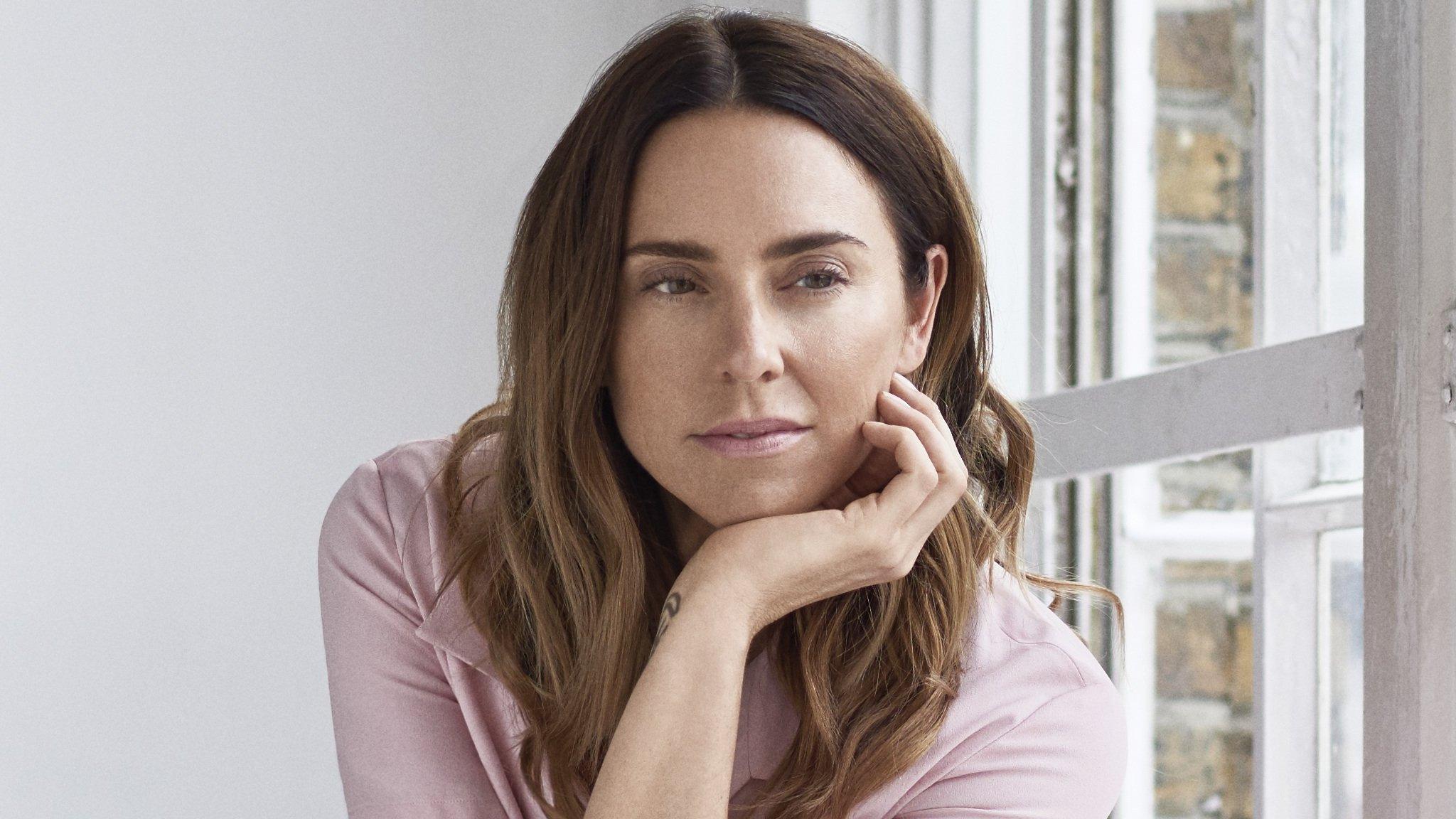
- Published8 July 2016
